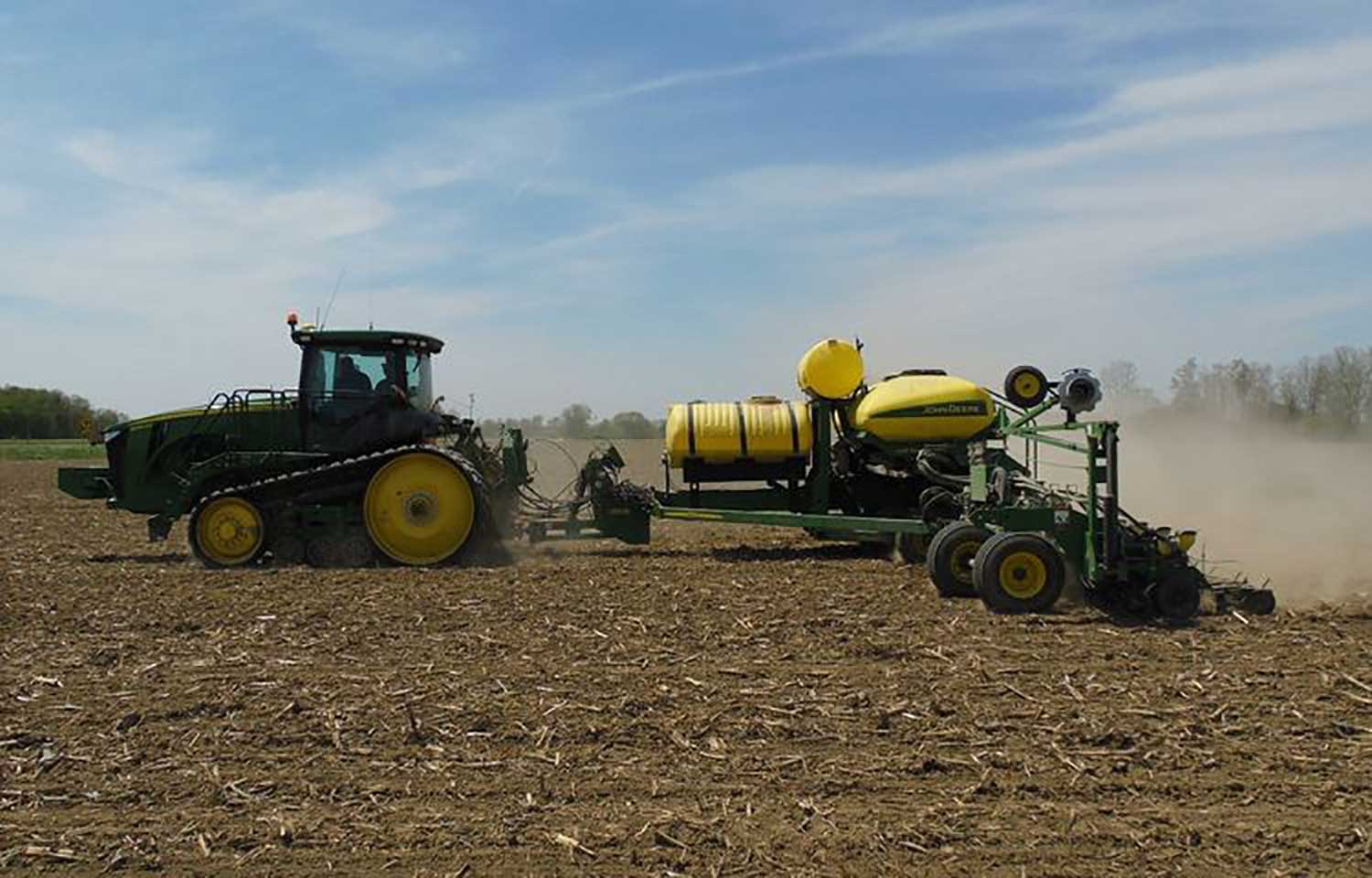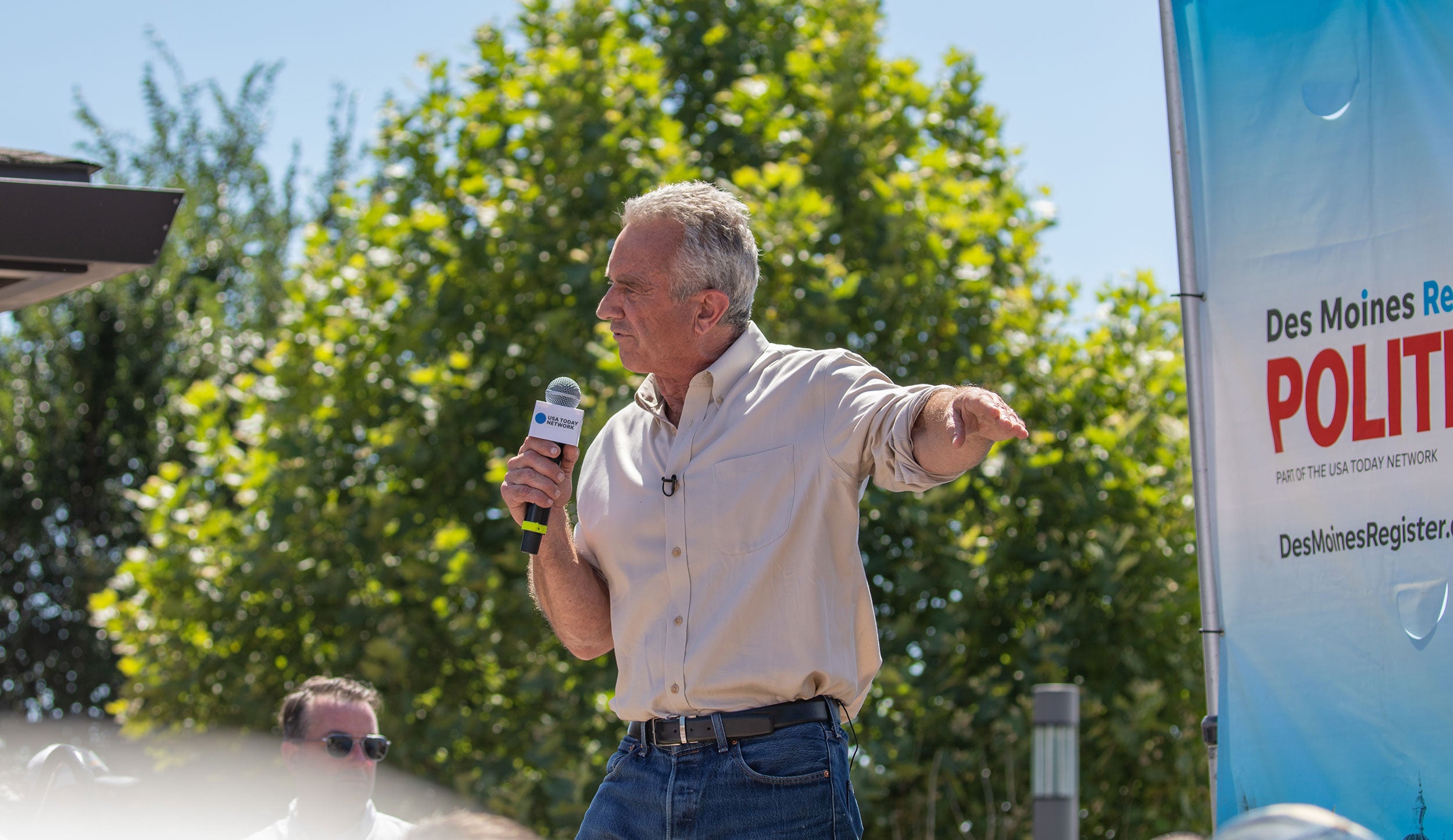The nominee to lead the Department of Health and Human Services has vowed to “weaponize” regulatory agencies against modern agriculture and undo decades of farm policy.
It’s official: President-elect Donald Trump has nominated Robert F. Kennedy Jr. to serve as secretary of the Department of Health and Human Services. Elections have consequences!
Trump made the announcement Thursday afternoon on social media saying, in part: “HHS will play a big role in helping ensure that everybody will be protected from harmful chemicals, pollutants, pesticides, pharmaceutical products, and food additives that have contributed to the overwhelming Health Crisis in this Country.”
I am thrilled to announce Robert F. Kennedy Jr. as The United States Secretary of Health and Human Services (HHS). For too long, Americans have been crushed by the industrial food complex and drug companies who have engaged in deception, misinformation, and disinformation when it…
— Donald J. Trump (@realDonaldTrump) November 14, 2024
Some in the media have speculated that Trump’s more surprising nominations were made for the sole purpose of alarming his critics and creating backlash — the proverbial middle finger. But even if that’s true, this appointment is more like a literal middle finger to agriculture, which constituted a key piece of Trump’s base over the years, by the way. While the media and pundits will likely focus on Kennedy’s lack of medical background or understanding, I want to focus on the absolute danger he poses to agriculture.
And I’m not exaggerating either. The U.S. Food and Drug Administration is housed within HHS. Emphasis on the word “food.” The FDA is charged with ensuring a safe food supply by regulating all foods that aren’t meat, poultry, or processed egg products. It has a hand in deciding whether new biotechnology is approved for commercial use. And it oversees food labeling requirements.
For decades, Kennedy already has backed a long list of conspiracy and fringe theories (like saying autism comes from vaccines or that fluoride is unsafe in water), and he would likely do more to intertwine those kinds of beliefs with the food and agricultural space (much like he does by claiming that the “mass-spraying of glyphosate on wheat” has been the root of celiac disease and gluten allergies in recent years).

RFK Jr. is known for opposing modern agriculture practices and has repeatedly advocated against large-scale producers, in addition to espousing those conspiracy theories. During the campaign, Trump expressed a desire to “let Kennedy go wild” on health and food policies. This freedom could create substantial regulatory disruptions for American agriculture, particularly concerning pesticide use, GMOs, and labeling — key areas where Kennedy has voiced strong opposition to the scientific consensus.
Pesticides are a focal point of Kennedy’s agricultural reformation. He has gone as far as saying he would “weaponize” regulatory agencies to eliminate the use of pesticides and has frequently used animal-activist terminology like “factory farming.” Spending much of his career as an environmental attorney, he took an active role in the first glyphosate trial against Monsanto that relied on dubious research and resulted in a multi-million-dollar judgment in California. That work helped enshrine public perceptions that linked glyphosate with cancer, despite nearly all scientific bodies and associated research affirming the safety of the herbicide.
RFK Jr. dreams of transforming U.S. agriculture into an organic, regenerative utopia. (Should we tell him about pesticide use in organic farming?)
RFK Jr. also wants to ditch farm commodities and has accused the U.S. food industry of engaging in the “massive poisoning” of Americans. Farmers, that includes you. Yes, the hardworking men and women who grow us the largest, safest, most affordable, and most nutritious food in the world are making our friends and neighbors sick. We should be so proud.

Agriculture understands why these modern practices are so important. Biotechnology is the perfect example. Since farmers started using bioengineered crops over 25 years ago, we’ve seen yields increase, the use of pesticides plummet, and farmer profits increase. We’ve improved the way we develop these crops, and we understand the potential to adapt to future environmental stressors. This is the epitome of sustainability.
Here’s the other part that scares me. In such a prominent role, someone like Kennedy can bring his crazy ideas into the mainstream. He’ll have one of the best pulpits to spread disinformation and attack our industry. Because some of his advocacy against “Big Ag” or processed foods might sound appealing to some, his real agenda opposes the development of technology and advancements that have driven agricultural productivity. As someone who has spent an inordinate amount of time trying to combat the nonsense, this is so incredibly frustrating.
Let me add the obligatory disclaimer. My disdain and distrust of RFK Jr. has nothing to do with my feelings about Trump. I don’t raise this alarm to be pro-Trump or anti-Trump. I’m not sharing whether I voted or who I voted for. My concern and passion belong to our farm families and, more specifically, my farm family. I’m horrified to think what this might mean for our communities.
But here’s the silver lining: Cabinet nominees have to be confirmed by the Senate. If there is any hope of derailing this train before it wrecks our communities, it’s in their hands. I’ll admit it’s a very thin silver lining, but this is what we have to work with. You can find the office phone numbers of each senator here (not yet updated following the election). You can also easily reach them on social media. And don’t be afraid to talk about this with others in the community. Because we have a lot to lose here.
Make America Healthy Again, forsooth!

Amanda Zaluckyj blogs under the name The Farmer’s Daughter USA. Her goal is to promote farmers and tackle the misinformation swirling around the U.S. food industry.



